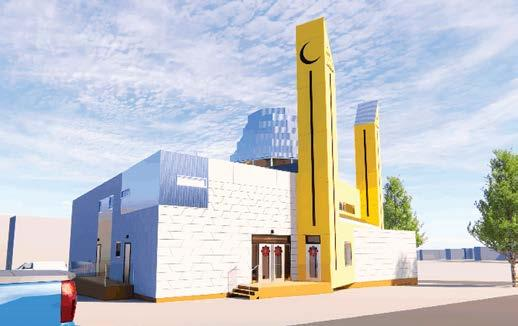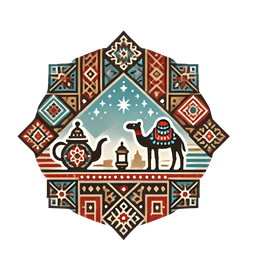- Published on
Severe Drought Impacting Eid al-Adha Traditions
- Authors

- Name
- Adil ABBADI
Introduction
Eid al-Adha, one of the most sacred Islamic holidays, is a time for celebration, family gatherings, and spiritual reflection. However, the severe drought affecting many parts of the world is taking a toll on the traditional practices and cultural significance of this occasion.
- The Impact on Animal Welfare
- Food Security Concerns
- The Cultural Significance of Eid al-Adha
- Alternative Qurbani Practices
- The Role of Governments and NGOs
- Community Response and Resilience
- Conclusion
- A Call to Action
The Impact on Animal Welfare
The drought has led to a shortage of water and feed for animals, making it difficult for farmers to maintain their livestock. This, in turn, is affecting the availability of animals for Qurbani, a crucial aspect of Eid al-Adha celebrations.

Food Security Concerns
The drought has also resulted in crop failures and reduced harvests, leading to food insecurity and economic instability in many regions. This is exacerbating the challenges faced by families preparing for Eid al-Adha, as they struggle to access affordable and nutritious food.
The Cultural Significance of Eid al-Adha
Eid al-Adha commemorates the willingness of Prophet Ibrahim to sacrifice his son as an act of obedience to Allah. The tradition of Qurbani, or animal sacrifice, is a symbolic representation of this sacrifice. However, the drought is forcing many communities to re-evaluate their Qurbani practices and explore alternative ways to maintain the cultural significance of the occasion.
Alternative Qurbani Practices
In response to the drought, some communities are adopting alternative Qurbani practices, such as:
- Virtual Qurbani: Online platforms allowing individuals to participate in Qurbani rituals remotely.
- Symbolic Qurbani: Using symbolic representations, such as models or pictures, to represent the animal sacrifice.
- Charitable Donations: Donating to organizations that provide food and support to those in need, rather than performing Qurbani.

The Role of Governments and NGOs
Governments and non-governmental organizations (NGOs) are playing a crucial role in mitigating the impact of the drought on Eid al-Adha celebrations. By providing support to farmers, distributing food and water to affected communities, and promoting sustainable agricultural practices, these entities are helping to ensure the continuation of traditional practices while promoting animal welfare and food security.
Community Response and Resilience
Despite the challenges posed by the drought, communities are coming together to support each other and find ways to maintain the cultural significance of Eid al-Adha. From sharing resources to organizing community events, the spirit of compassion and generosity that defines this occasion remains strong.

Conclusion
The severe drought is undoubtedly affecting Eid al-Adha traditions, but it is also bringing communities together and encouraging innovation and resilience. As we navigate these challenging times, it is essential to remember the core values of compassion, generosity, and faith that underpin this sacred occasion.
A Call to Action
As we celebrate Eid al-Adha, let us not forget the importance of animal welfare, food security, and sustainable practices. Let us work together to build a more resilient and compassionate world, where the cultural significance of this occasion can continue to thrive.
